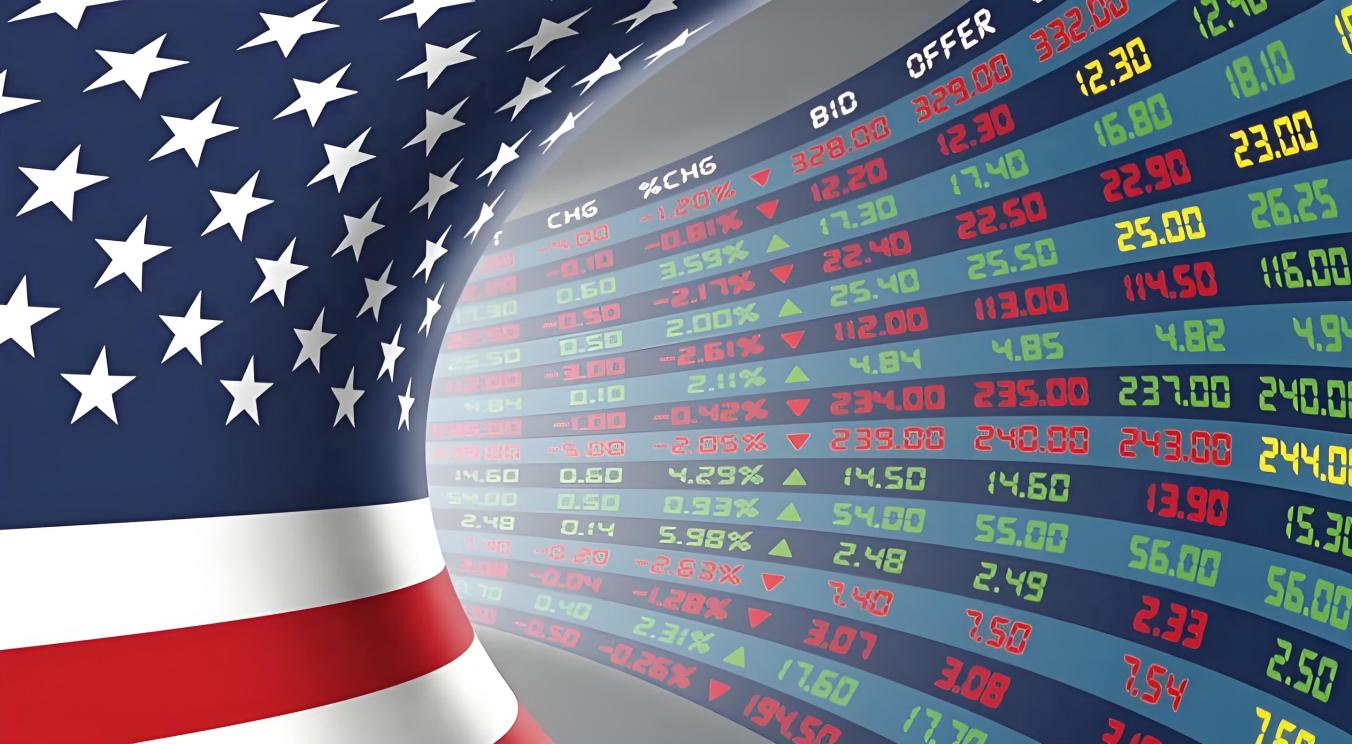
On April 22, 2025, all three major U.S. stock indices closed lower. The Dow Jones Industrial Average dropped by 2.48%, the S&P 500 Index fell by 2.36%, and the Nasdaq Composite Index declined by 2.55%. Technology stocks led the decline, with Tesla, NVIDIA and other "tech giants" all falling. The sharp decline of the US stock market this time is mainly caused by the following factors.
Recently, Trump has frequently pressured Federal Reserve Chair Powell, demanding an "immediate interest rate cut" to ease economic pressure and even threatening to remove him from his position. This has raised concerns in the market that the Federal Reserve has become a "political puppet". Chicago Fed President Goulsby warned that political interference in monetary policy would seriously damage the credibility of the Federal Reserve. Historically, the loss of the independence of the Federal Reserve has often been accompanied by sharp market fluctuations, such as the "Black Monday" stock market crash in 1987. Investors are worried that the politicization of monetary policy will lead to an unpredictable policy path, which in turn will affect the economic outlook. Therefore, they have been selling stocks one after another.
The Trump administration's measures to impose tariffs have pushed up inflationary pressure in the United States. Enterprises have stockpiled goods in advance to cope with tariffs. Short-term economic data is distorted, but the long-term growth outlook is dim. Meanwhile, the risk of retaliatory selling of US Treasuries by global trading partners has increased significantly, further disrupting the financial market. Brown Brothers Harriman of the United States pointed out that the trade war has raised investors' concerns about a recession in the United States, and the market is expressing its irrational "voting with its feet" against policies by selling assets.
The leading economic indicator (LEI) in the United States declined by 0.7% month-on-month in March. Consumer expectations, stock prices and manufacturing orders all weakened, suggesting weak economic growth in the future. This data further intensified investors' concerns about the economic outlook of the United States, prompting them to reduce their investment in the stock market.
Hedge funds' large-scale liquidation of US Treasury bond "basis trading" has cast a shadow of the liquidity crunch in March 2020. The yield on 10-year US Treasuries has exceeded 4.4%, and that on 30-year Treasuries is approaching 5%. The financing cost has soared, which has increased the financial pressure on enterprises and investors, thereby intensifying the selling pressure on the stock market. Citigroup economists have warned that if the Federal Reserve does not intervene promptly, a crash in the US bond market could trigger systemic risks.
The news that the White House is considering replacing Powell has further dampened investor confidence. The market is concerned that the loss of the Federal Reserve's independence may trigger a credibility crisis for the US dollar, leading to capital outflows from the stock market and seeking safer investment channels.
A sharp decline in the stock market may affect the financing environment of enterprises, increase their financing costs, and thereby restrain their investment and expansion plans. Meanwhile, the weakening of the wealth effect in the stock market may also affect consumers' confidence and consumption expenditure, exerting a certain inhibitory effect on the growth of the US economy.
The US stock market is an important component of the global financial market. A significant decline in it can trigger a chain reaction in the global financial market. On the one hand, the stock markets of other countries may be dragged down and decline to varying degrees. On the other hand, funds may flow from the US stock market to assets in other countries, leading to a reallocation of global capital flows.
The asset value of investors has shrunk significantly, especially for those who hold a large amount of US stocks. Furthermore, the sharp fluctuations in the market will also increase investors' panic, making them more cautious about their future investment decisions. Some investors may choose to reduce their investment in stocks and increase their allocation to safe-haven assets such as bonds and gold.
The sharp decline of the US stock market on April 22, 2025 was the result of multiple factors working together, reflecting the market's concerns about the US economic policies and economic outlook. In the future, the trend of the US stock market will depend on a variety of factors, including the monetary policy of the Federal Reserve, the trade policy of the US government, and the development trend of the global economy.

On January 4th local time, Trump warned India that if it does not limit its purchase of Russian oil, the United States will continue to raise tariffs on Indian products. Trump's latest warning sent shockwaves through the Indian financial market in just one day.
On January 4th local time, Trump warned India that if it do…
In October 2025, the US trade deficit narrowed unexpectedly…
According to the British media CoinJournal, recently, due t…
In January 2026, US President Trump once again set his sigh…
Europe is facing a crucial strategic choice: In the face of…
On New Year's Day 2026, BMW China announced a "systematic v…